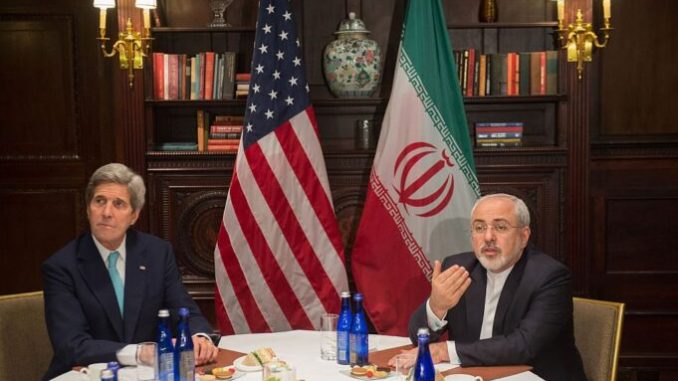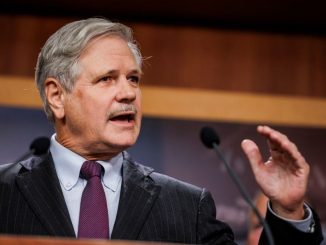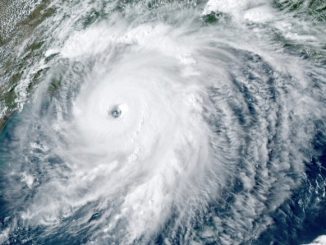

US Secretary of State John Kerry meets with Iran’s Foreign Minister Mohammad Javad Zarif on April 22, 2016 in New York for a JCPOA meeting. (BRYAN R. SMITH/AFP via Getty Images)
OAN Newsroom
UPDATED 10:40 AM PT – Saturday, January 2, 2021
Iran is reportedly planning to up its Uranium enrichment program to surpass far beyond the Iran nuclear deal’s regulations.
On Friday, the United Nations nuclear watchdog announced it was informed by Iran of its intentions to enrich uranium further past energy grade fissile material and closer to weapons-grade material.
For peaceful nuclear energy purposes, Uranium enrichment doesn’t need to exceed five percent. However, Iran said it plans to increase its enrichment to 20 percent for what they’re claiming as “research purposes.”
Making the jump from five percent enrichment to 20 percent is quite difficult. However, enriching to 20 percent cuts the time needed to make weapons-grade uranium, which makes the process substantially easier.
This is why many are worried by Iran’s eagerness to produce large stockpiles of enriched uranium. Iran looks to carry out this enrichment research at the Fordow Fuel Enrichment Plant, which is located beneath a mountain.
The International Atomic Energy Agency said nuclear enrichment is not permitted at Fordow according to the 2015 Iran nuclear deal. However, activity at the plant has been ongoing.
“The enrichment process includes several stages,” Iran Foreign Minister Mohammad Javad Zarif said. “The first is transferring material to Fordow, which has now been done.”
Some have blamed President Trump and his withdrawal from the Iran nuclear deal for Iran’s increased aggression. However, many said the JCPOA deal was destined to fail, as Iran has been proven in the past to cheat when it comes to international arms restrictions.
One major weak-point in the deal was that Iran did not have to submit to spontaneous inspections. The country also had the ability to delay the checks for up to 24 days.
Another major point of concern included the 10-to-15 year limit on the deal, which could grant an emboldened Iran to achieve nuclear weapons capabilities immediately after the deal’s expiration.
According to reports throughout 2020, the nation’s nuclear stockpiles were 12 times larger than what was permitted under the nuclear deal, which is still an active agreement between many European powers and Iran.
If Iran achieves nuclear weapons capabilities it could set a dangerous precedent, causing regional competitors like Saudi Arabia to try to follow suit.
MORE NEWS: Senate Votes To Override The President’s Veto On Defense Bill






Be the first to comment